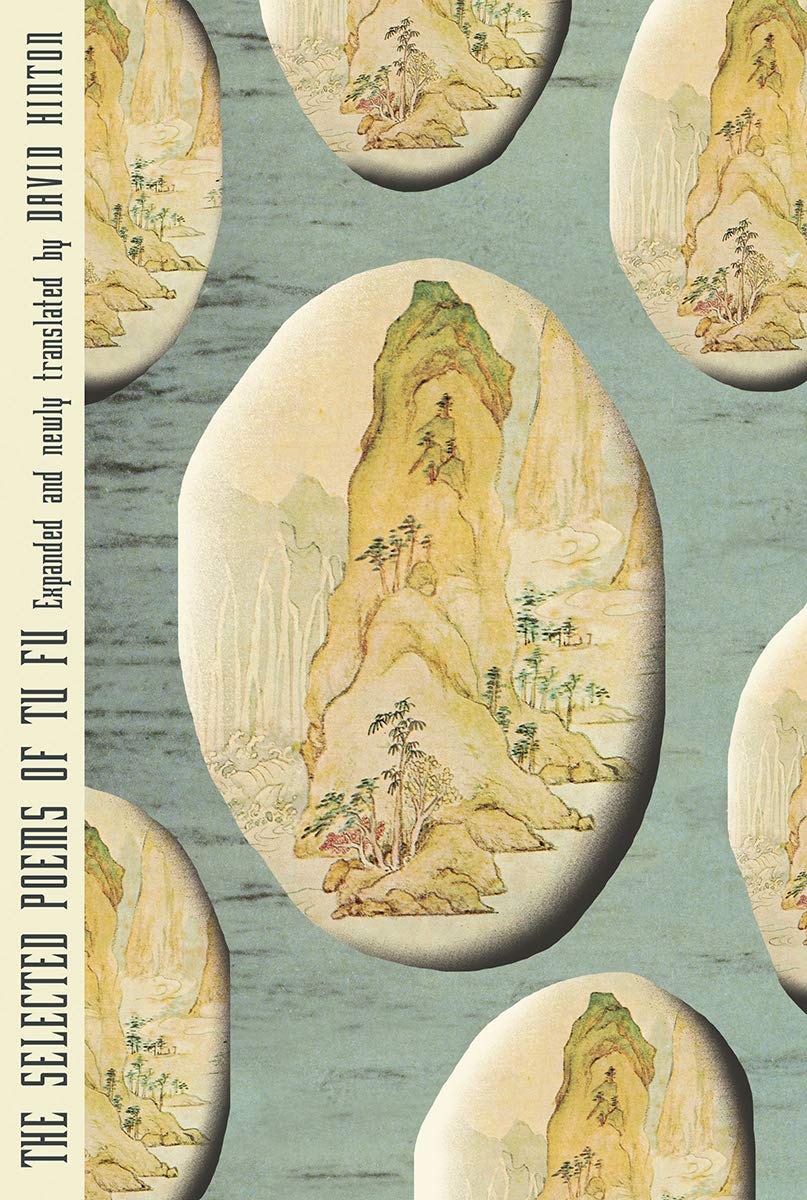

The Selected Poems of Tu Fu: Expanded and Newly Translated by David Hinton
D**N
stunning - I wish I read Chinese
Poetry in translation naturally loses some of its power and beauty - and in reading David Hinton's translations, there is a sense of "clunkiness" to some of the poems. Still, the raw emotion, passion and tragedy of Du Fu's life is apparent here. While I cannot comment on changes to style or content in classical Chinese poetry that Du Fu apparently introduced, the intensely personal nature of his work are far from the abstract symbolism typically associated with poetry. These are the poems of a man who knew how to live - the joys and sorrows and trials of life have an immeadiacy that belies their age. (Du Fu wrote between 737 - 770 CE) An example: "To stand alone - temples bleached with trouble and worry, Defeated .... and here I've just sworn off that blessed wine." What a guy!What I found most helpful in reading and understanding Du Fu was the chronology for the poems (what was going on as the T'ang Dynasty began to implode and what and where Du Fu was during this time) as well as his notes about each poem, providing information about geographical landmarks and specific events relevant to each poem. A must for any lover of poetry or those interested in T'ang China.
R**E
Bringing Us the Soul of China’s Greatest Poet. -- New Edition
Note: Many reviews here are of the earlier translation by Hinton of TU Fu's poetry. This 2020 edition is almost totally new and much deeper in its dimensions of Chan Buddhism and Taoist cosmology.I have read almost all of David Hinton’s books – translations and spiritual works.This is his finest work to date. Following in the footsteps of Ezra Pound, Arthur Waley, Winner Binner, David Owen, Sam Hamill, and Red Pine. Pound established Chinese poetics in English with his strong images and direct speech. Hugh Kenner wrote that Pound invented China in the English language. Hinton continues in this tradition but goes way beyond.Hintons’ Tu Fu comes to us ablaze with Chinese Cosmology and philosophy. Hinton argues that the educated artists and poets were deeply engrained in Taoist/Chan/Zen conceptual and spiritual world views. Presence/Absence is the world ablaze from a single generative tissue.This tissue like Chan Buddhism avoids picking and choosing, but just is as it is, moment by moment. Such a world view means that even the most difficult things in life – plagues, wars, death of loved ones are part of the great unfolding. Concepts of time and space are brought into by the working out of emergence and disappearance. The great Japanese Zen master, Dogen Kigen, rolls out this thinking almost as far as it can go in his Being-Time and Mountains and Rivers essays.I attended a workshop at Upaya Zen Center on Hinton’s great translation of the koan collection, the No Gate Gateway. Hinton’s Tu Fu follows on the heels of that translation where he goes back to original Chinese cosmology to work out Tu’s brilliance and deep humanity.Reading Hinton’s Tu Fu was, for me, like reading a sacred text because of the way Hinton brings forth Tu Fu’s conceptual world view. The world of Tu Fu’s poetry includes concepts of Presence/Absence, Way (Tao), Emptiness, Sparceness, Quiet mystery, Loom of Origins, Dark-Enigma, Inner-Pattern, Chi, Mind, Chi-Mind, and Sight. In this translation the images are as sharp as anything Pound or others have done. But there are layers and layers of depth. Tu’s life was, during wartime one of continual dislocation and pain – and brilliant beauty. With plain looking and meditation Hinton’s Tu opens the largest and most personal cosmos.Reading this book will open the mind and the heart.
T**N
Poetry as Transcendence
This is a very fine exploration into the work of Tu Fu. The introduction, the translation, the biography and notes constitute a portrait of the man and the cultural world he inhabited. One always has to wonder how valid a translation of 8th century Chinese poetry into 21st century American can be, and clearly any translator is creating a new being based on sympathies and guesswork, and T'ang Dynasty history homework.But there is a qualitative hierarchy of understanding that provides that the highest perceptions remain comprehensible through and despite changes of time. This comprehensible "something" is not easy to specify, and specification would kill it. Hence the need for poetry. But there is a certain emotional context to Tu Fu's poems about the hardships and momentary joys of his life that is missing from our cultural world, and that is always missing, for which there is always a remote nostalgia. A sense of the realness of life, the seriousness of it, the ultimate goodness of it, or maybe I should say that they, the poems, are explorations of the miracle of selfness in the world of sad events.The printing in the book is painfully black and inky, but apart from that, it's great.The translations were by David HInton, who, by my somewhat limited experience of reading translations of the great Chinese poets, is the best. There is an element of mindfulness to these poems and to other poets Hinton has translated - re-construed - that most of the translators miss. In fact, the mindfulness, the watching, no matter what the personal favorability of the circumstances is the whole point. Transcendent emotions grounded in daily life.
P**N
Lovely book
Enjoyable reading
D**N
Very moving evocative relevant
Wonderful translations from 8th century CE Chinese poetry into contemporary English. Tu Fu wrote about his life in tumultuous times, so totally relevant today.
M**E
Arrived in excellent condition , by the promised day .
As a member of a discussion group it proved invaluable .
P**H
Wonderful!
I love this. What a lovely translation. I'm so pleased to own a copy of this, thank you very much to the translator!
Trustpilot
5 days ago
2 weeks ago